Waterlily and Cattails Tumblers – Dugan, Fenton or Northwood?
Fenton is reported to have started with the Waterlily & Cattails pattern with Northwood jumping in soon after. We don’t know when Dugan/Diamond got into the fray, but apparently, they did as well.
The pitchers (only found in Fenton & Northwood) are totally different shapes, so they are easy to identify, but the tumblers are trickier. Especially since there may have been multiple molds used by the companies. One of the other critical pieces in the puzzle is recognizing that although each tumbler has three waterlilies going around the tumbler, each of them has differences on a single tumbler. What that means is that 2 of the sets of cattails may be horizontal with the right higher than the left, but the other set may be angled up with the left slightly higher than the right. What we once thought were mold differences may actually be a different side of the tumbler.
Easy ID
Northwood tumblers MAY be signed with the Northwood trademark N in a circle, but if you can’t see that from a picture, this may help you with your identification. King Hoppel helped with this set of pictures – if you can see the bottom of any one of the tumblers, here’s the easy way to ID them (looking below the flower):

So, let’s break them down by manufacturer to see the details:
Dugan (Diamond)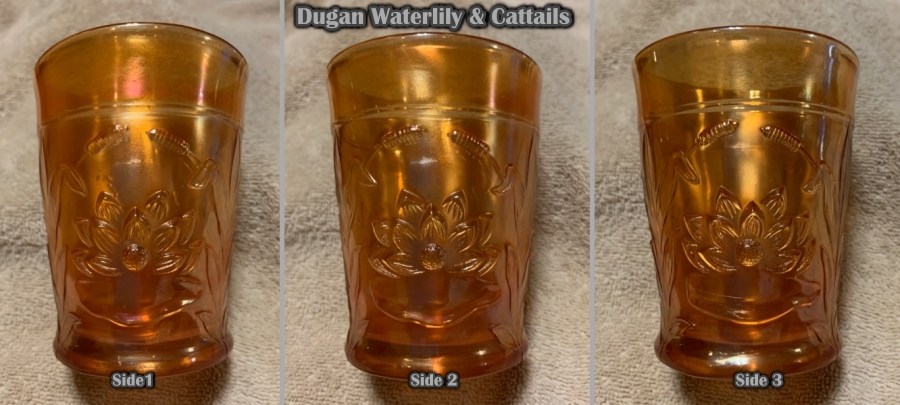
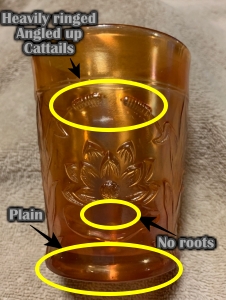
These are Dugan tumblers – most easily identified by the plain area below the flower and the lack of detail in the cattail leaf that goes up the side. There are also heavily ringed cattails that angle up (with the left slightly higher than the right on all 3 panels). There are no flower roots going into the water. The leaf attached to the cattail is very plain, rounded on top and pointed on the end. We have seen one with a very pinkish cast to the base glass, which may imply Diamond’s After Glow with marigold over the pink glass. Measures about 3 ¾” tall.
Fenton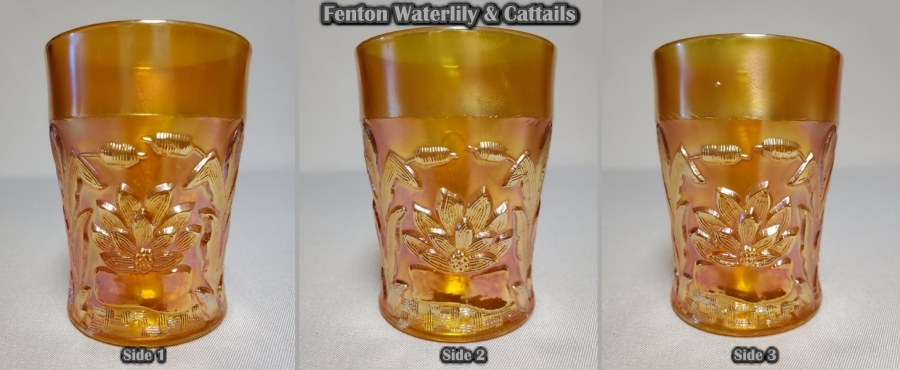
These are Fenton tumblers – most easily identified by the basketweave at the base of the tumbler.
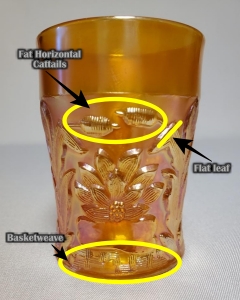
As seen in the closeup above, Fenton has the basketweave at the bottom of the tumbler as the first ID point. Second is probably the leaf by the cattails. The edge of the leaf meeting the cattail is basically flat (and most are quite pointed on the top bend). And on most Fenton tumblers, the cattails are thick and almost horizontal with the right higher than the left. Each set has minor differences, as do the flowers and the shape of the water below the flowers. Other molds may have yet other unique differences.
Measures between 3 7/8” to 4” tall.
Northwood
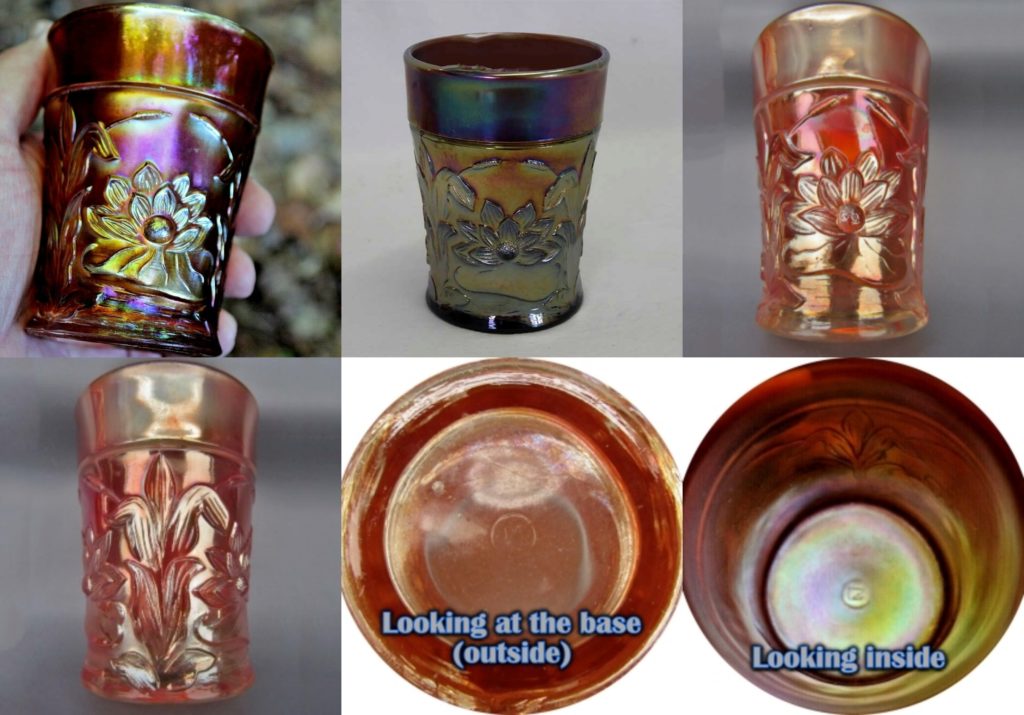
These are most likely all Northwood tumblers. It is assumed that Dugan and Fenton only did marigold.
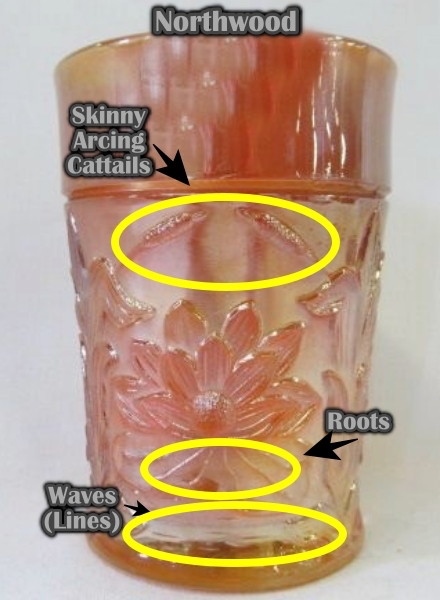
The easiest identifier for the Northwood version will be the trademark N in a circle in the base (if it is marked). The second thing is probably the horizontal ‘waves’ or lines at the bottom, then the roots showing below the flower and the skinnier cattails that arc up (and are usually almost mirror images).
